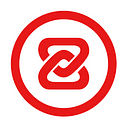It seems like Blockchain is one of the only things that will save banks from cryptocurrencies, as crazy as it may sound. While cryptocurrencies rely heavily on blockchain technology, banks have realized the potential for blockchain to help make their transactions cheaper and instant. One of the hottest topics in the financial services industry today is blockchain banking. If fully adopted, it will enable banks to process payments more quickly and more accurately while reducing transaction processing costs and the requirement for exceptions.
Blockchain provides a high level of security for exchanging data and money. The blockchain is safe, secure, decentralized, transparent as well as low-cost. The use of blockchain in banking has the potential to solve a lot of problems.
Blockchain was originally created to serve as the public transaction ledger for cryptocurrencies, with bubble-bursting Bitcoin by far its most famous progeny. Put simply, multiple parties have simultaneous access to a constantly updated digital ledger that cannot be altered, and therefore functions as a single source of truth. Moreover, it is ‘virtually’ impossible to hack. Blockchain and distributed ledgers certainly have a bright future. As real-time, open-source and trusted platforms that securely transmit data and value, they can help banks not only reduce the cost of processing payments, but also create new products and services that can generate important new revenue streams.
The biggest key to turning blockchain’s potential into reality is a collaborative effort among banks to create the network necessary to support global payments. Banks need to look at the bigger picture and work together — and with non-banks — to help define the backbone that can underpin a universally accepted, ubiquitous global payment system that can transform how banks execute transactions. However, to capitalize on this potential, banks need to build the infrastructure required to create and operate a true global network using solutions based on this transformative technology.
According to an article published on June 18th, 2019 by Cointelegraph.com, the Italian Banking Association (ABI) has announced that Italy’s banks will integrate distributed ledger technology (DLT) into internal processes to boost settlements. The deployment of blockchain is set to improve transparency in transactions between banks and efficiency of communication between counterparts.
According to the same article, in February of this year. The Italian House of Representatives approved a bill defining DLT and blockchain, as well as the technical criteria that smart contracts will have to comply with in order to have legal validity.
However, Italian banks are not the first ones to adopt blockchain and distributed ledger technology: the American multinational investment bank started the ‘Quorum’ specifically for research and implementation of Blockchain; Bank of America, a major US bank has filed a patent document which was published by the U.S. Patent and Trademark Office for the implementation of Blockchain and in India , 11 banks including ICICI Bank, HDFC Bank, Axis and Yes Bank have decided to come together and launch India’s first blockchain-linked funding initiative for small and medium enterprises (SMEs).
Even the biggest jumbos in the banking sector have started testing and finding out the best use cases of this blockchain technology. Other than that, many banking organizations started investing huge amount for the R&D process for blockchain based solutions to solve their issues. The entry of blockchain in banking sectors, or the entry of banks in the blockchain sector can resolve lots of problems and issues in the banking sector and make banking system transparent and more reliable.
Security, reliability and transparency are not a priority only for banks. When it comes to the cryptocurrency sector, digital asset exchanges compete not only by listing the highest ranked blockchain projects, but they also compete in a technological level, such as designing and offering a safe platform for their users to trade. Some of the best established and oldest digital asset exchanges are: ZB.com (2013), Huobi (2013) and OKEx (2014).
Out of those three digital asset exchanges, ZB Exchange is the one that has a clean record of hacker attacks. In six years of operation, ZB Exchange has been extremely successful in securing its users digital assets, never being hacked. It has been extremely successful in constantly upgrading its security standards exceeding industry best practices. ZB.com applies the highest security standards and technology developed and implemented by its extensive body of professional engineers who work 24/7 to provide ZB.com users with a secure platform.
Other than secure and professional, ZB Exchange is also an exclusive multifunction platform for the crypto user. The exchange prides itself in serving its users only with high-quality projects. The listing standards are high and not every project make it to be listed on ZB.com. With the rapid development of the Blockchain and cryptocurrency industry, ZB Exchange is currently accelerating its pace towards conquering the global market.
ZB.com provides powerful trading tools such as OTC, C2C, Margin Trading to users around the world. The number of ZB registered users have exceeded 3 million among five trading zones: QC, BTC, ZB, USDT and PAX. ZB Exchange (ZB.com), ZB Group’s flagship exchange, has listed more than 80 tokens and offers 218 trading pairs, with an average daily trading volume of about US$3 billion. As the world’s leading digital asset trading platform, ZB Exchange has a wealth of experience in blockchain finance. Since its launch in 2013, the security and exclusivity of the platform has also been a key factor in attracting worldwide users. ZB.com is exploring and contributing to the development of the new economy.
Learn more about ZB Exchanging by visiting www.zb.com.
About ZB Group
ZB Group was founded in 2012 with the goal of providing leadership to the blockchain development space and today manages a network that includes digital assets exchanges, wallets, capital ventures, research institutes, and media. The Group’s flagship platform is ZB.com, the industry leading digital asset exchange. The platform launched in early 2013 and boasts one of the world’s largest trading communities.
